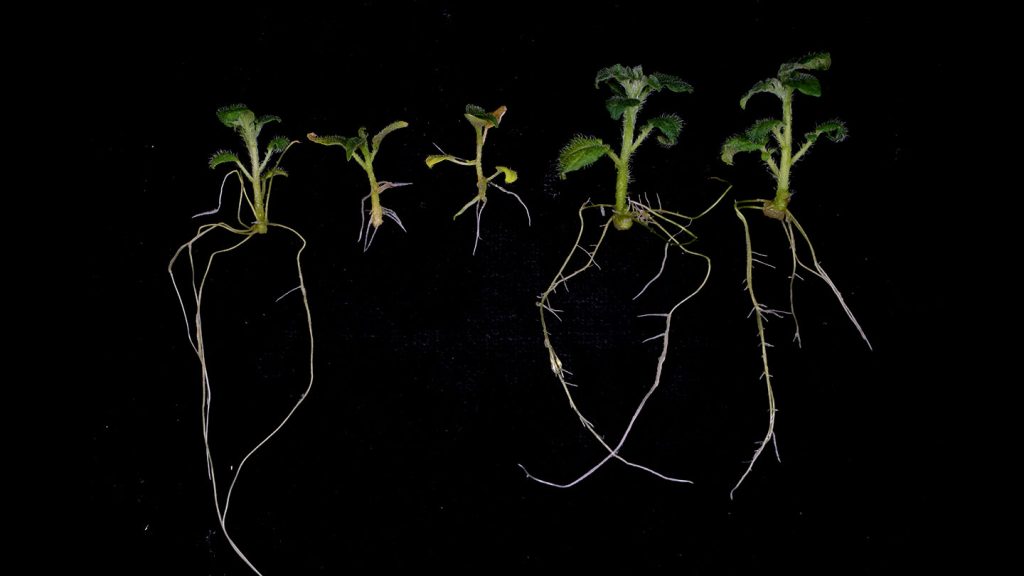Potatoes are a popular food around the world, but modern farm potatoes require large amounts of nitrogen in the form of nitrate fertilizers, which can be costly and environmentally harmful. A group of researchers has found that the genetic mechanism that regulates when potatoes grow flowers and tubers is also involved in the plant’s nitrogen management. This discovery could lead to the development of potato varieties that require less fertilizer, saving farmers money and reducing the environmental impact of potato cultivation.
Originally native to the Andes, potatoes grew tubers only during winter as a way to store nutrients. However, when introduced to Europe in the 16th century, the plants faced challenges due to the shortening of winter days and freezing temperatures. A natural genetic mutation in the StCDF1 gene enabled the potato plants to adapt and grow tubers at any time and in a wider range of locations without the need for seasonal cues. Researchers have found that StCDF1 acts as a switch, turning on and off genes that are essential for nitrogen uptake, including the production of the nitrate reductase enzyme.
To test the impact of tweaking the StCDF1 gene on nitrogen uptake, researchers grew potato plants with a disabled StCDF1 gene in a low-nitrogen environment. The plants were unable to grow tubers but produced larger leaves and longer roots despite the lack of nitrogen. Commercial potato varieties worldwide have a more active form of the StCDF1 gene, making them less efficient at assimilating nitrogen. This leads farmers to use more fertilizer than the plant can absorb, resulting in pollution of groundwater when excess fertilizer runs off during rain events.
This discovery opens the door to developing potato varieties with increased nitrogen efficiency to reduce the environmental impact of potato farming. Researchers are planning to utilize gene-editing techniques to tweak the gene that produces the nitrate reductase enzyme, ensuring that it is not repressed by StCDF1. This can also be achieved through traditional breeding methods by crossing farm potatoes with wild or traditional varieties with naturally altered nitrate reductase genes. Improving nitrogen assimilation in potatoes is crucial for food security, making this finding potentially significant for agriculture.
Nitrogen uptake is a major challenge in agriculture, and the potential to improve the nitrogen efficiency of potatoes could have widespread benefits. By enhancing the plant’s ability to absorb nitrogen, farmers can reduce their reliance on expensive and environmentally harmful fertilizers. This finding is particularly important in the case of potatoes, as they are a staple crop grown worldwide. The researchers’ experiments have shown that it is theoretically possible to enhance nitrogen efficiency in potatoes, which could lead to bigger tubers and improved food security globally. This discovery highlights the potential for significant advancements in potato cultivation by targeting the genetic mechanisms involved in nitrogen management.


